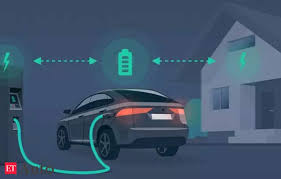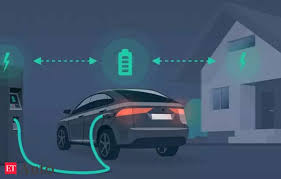
Global investors have been drawn to Indonesia by its EV-friendly policies, but experts believe there is potential for even greater investment growth in Southeast Asia's automotive sector as a whole.
Anindya Novyan Bakrie, CEO and president director of Bakrie & Brothers, an Indonesian conglomerate whose electric vehicle branch VKTR manufactures electric buses as well as EV parts, suggested that Indonesia may serve as the "gateway" to the rest of the Association of Southeast Asian Nations.
Copper, nickel, cobalt, and bauxite are abundant in the Southeast Asian nation; these elements are needed to make the batteries for electric vehicles. According to a research by the ASEAN Briefing, Indonesia is the world's top exporter of nickel, with 22% of the global reserves.
In an effort to turn its wealth of natural resources into a significant worldwide hub for the supply chain for electric vehicles, Indonesia has courted companies like Tesla.
“Indonesia’s rich endowment in natural resources required for EVs underpins its attractiveness … and is certainly a pull factor for EV investments especially in the aftermath of a nickel ore ban and a government that is increasingly calling for the beneficiation of its natural resource to unlock economic growth,” Koketso Tsoai, automobiles analyst at BMI Fitch Solutions said.
In an effort to entice investors and businesses in need of certain materials to its shores, Indonesia has restricted the export of some metals and minerals.
The nation has received a lot of help lately in its effort to establish itself as a world centre for EV batteries. The expansion of EV production facilities in Indonesia has attracted billion-dollar investments from Asian automakers including Toyota and Hyundai.
A 2022 ASEAN investment study highlighted that between 2019 and 2021, EV battery manufacture accounted for a sizeable portion of foreign direct investment in the region, particularly in Indonesia, Malaysia, and Thailand.
Despite its efforts, Indonesia still has challenges in increasing automobile production.
“It will be tough for Indonesia to replace Thailand as a regional vehicle production hub, as the latter has a long-established export-oriented automotive industry. Indonesia will also face challenges from lower-cost producers like Vietnam and the Philippines,” said Nishita Aggarwal, automotive analyst at EIU.
However, Indonesia's EV sector's expansion may have a positive spillover on its neighbours. According to a Maybank analysis, the nation "could attract much more investment and... help ASEAN as a region adopt electric vehicles faster and more affordably" by making essential materials for EV batteries accessible.
Despite the fact that Indonesia's natural resources have greatly contributed to the development of ASEAN's competitive EV ecosystem, Bakrie & Brothers contend that investors are more inclined to consider the area as a whole.
According to the CEO of the business, "producing the actual EVs in Indonesia, I think it is something that these companies will take a look at ASEAN as a region."
According to him, nations can "combine forces" to add different assets and knowledge to the region's EV ecosystem.
For instance, Malaysia provides "even more niche product mix of high-tech goods in an era of increasing digitalization in the automotive industry," according to BMI's Tsoai.
In ASEAN, he added, Indonesia will play a "outsized role in the upstream sector of the EV supply chain." However, Indonesia's leadership in this field may complement the knowledge of other Southeast Asian nations and strengthen the region's overall EV ecosystem.
(Source:www.reuters.com)
Anindya Novyan Bakrie, CEO and president director of Bakrie & Brothers, an Indonesian conglomerate whose electric vehicle branch VKTR manufactures electric buses as well as EV parts, suggested that Indonesia may serve as the "gateway" to the rest of the Association of Southeast Asian Nations.
Copper, nickel, cobalt, and bauxite are abundant in the Southeast Asian nation; these elements are needed to make the batteries for electric vehicles. According to a research by the ASEAN Briefing, Indonesia is the world's top exporter of nickel, with 22% of the global reserves.
In an effort to turn its wealth of natural resources into a significant worldwide hub for the supply chain for electric vehicles, Indonesia has courted companies like Tesla.
“Indonesia’s rich endowment in natural resources required for EVs underpins its attractiveness … and is certainly a pull factor for EV investments especially in the aftermath of a nickel ore ban and a government that is increasingly calling for the beneficiation of its natural resource to unlock economic growth,” Koketso Tsoai, automobiles analyst at BMI Fitch Solutions said.
In an effort to entice investors and businesses in need of certain materials to its shores, Indonesia has restricted the export of some metals and minerals.
The nation has received a lot of help lately in its effort to establish itself as a world centre for EV batteries. The expansion of EV production facilities in Indonesia has attracted billion-dollar investments from Asian automakers including Toyota and Hyundai.
A 2022 ASEAN investment study highlighted that between 2019 and 2021, EV battery manufacture accounted for a sizeable portion of foreign direct investment in the region, particularly in Indonesia, Malaysia, and Thailand.
Despite its efforts, Indonesia still has challenges in increasing automobile production.
“It will be tough for Indonesia to replace Thailand as a regional vehicle production hub, as the latter has a long-established export-oriented automotive industry. Indonesia will also face challenges from lower-cost producers like Vietnam and the Philippines,” said Nishita Aggarwal, automotive analyst at EIU.
However, Indonesia's EV sector's expansion may have a positive spillover on its neighbours. According to a Maybank analysis, the nation "could attract much more investment and... help ASEAN as a region adopt electric vehicles faster and more affordably" by making essential materials for EV batteries accessible.
Despite the fact that Indonesia's natural resources have greatly contributed to the development of ASEAN's competitive EV ecosystem, Bakrie & Brothers contend that investors are more inclined to consider the area as a whole.
According to the CEO of the business, "producing the actual EVs in Indonesia, I think it is something that these companies will take a look at ASEAN as a region."
According to him, nations can "combine forces" to add different assets and knowledge to the region's EV ecosystem.
For instance, Malaysia provides "even more niche product mix of high-tech goods in an era of increasing digitalization in the automotive industry," according to BMI's Tsoai.
In ASEAN, he added, Indonesia will play a "outsized role in the upstream sector of the EV supply chain." However, Indonesia's leadership in this field may complement the knowledge of other Southeast Asian nations and strengthen the region's overall EV ecosystem.
(Source:www.reuters.com)





